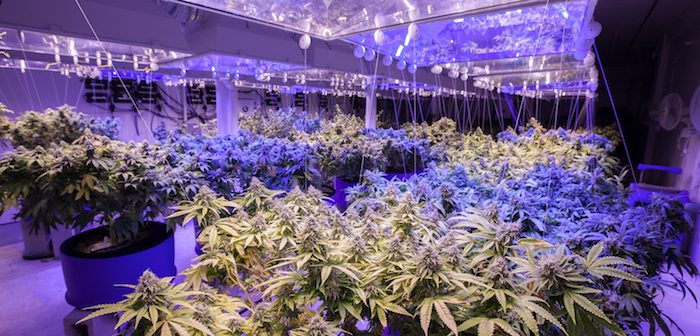Gov. Phil Scott has created a commission to study legalized marijuana through an executive order after vetoing a marijuana legalization bill earlier this year.
The governor’s commission will focus on public health and safety issues, but will also consider the possibility of a taxed marijuana market.
“We cannot ignore the fact that states around us have already legalized,” Scott said in a statement. “This Commission is part of a more thoughtful, deliberative process to deal with an issue that impacts all of us.”
The group will be co-chaired by Tom Little, an attorney and former Republican state representative, and Jake Perkinson, an attorney and former chairman of the Vermont Democratic Party.
In May, Scott vetoed a marijuana bill that had passed the Vermont Legislature and would have legalized small amounts of marijuana for personal recreational use and created a study commission. The governor later supported a compromise marijuana bill, but it failed to move through the House of Representatives during June’s one-day veto session.
The bill now awaits legislative action in January. Scott’s new commission will move forward in the meantime.
“The commission was an important part of the legislation, so we’re glad to see it moving forward,” Speaker of the House Mitzi Johnson said in a statement provided by her chief of staff.
Senate President Pro Tempore Tim Ashe, D/P-Chittenden, said he worried that the commission might be used as an excuse for the governor to delay legalization.
“Does it or does it not throw up a roadblock for the governor to support any action in the short-term?” Ashe said.
Rebecca Kelley, a spokeswoman for Gov. Phil Scott, declined to say whether the governor would continue to support in January the marijuana compromise bill he backed in June.
“It’s too early to say how the commission will impact that legislation,” Kelley said. “It’s too early to say one way or the other what he would do at this point on the legislation.”
The governor’s commission differs from what the Legislature envisioned in June in several ways:
Scott’s commission will have three subcommittees that will examine roadway safety, education and prevention, and taxation and recreation of marijuana for recreational use.
The commission’s first priority will be to collect credible research and data related to marijuana. Next, the commission will make recommendations related to youth prevention, substance abuse treatment facilities and other issues.
Recommendations on a possible regulated marijuana market will come last.
The governor’s compromise with legislative leaders, which stalled in June, envisioned a commission that would write legislation to support a regulated marijuana market in addition to considering public health and safety.
Members
The governor’s commission has 13 members, rather than the 14 members the Legislature considered during the June veto session.
The Legislature’s version would have allowed Gov. Scott to appoint one member and instructed the commission to select its own chairperson. Scott’s executive order guarantees that the governor’s two appointees, Little and Perkinson.
The governor’s executive order also limits the number of commission members appointed by the Speaker of the House and the Senate’s Committee on Committees. They will appoint two members each, rather than three.
Compared to the commission envisioned in June, the governor’s order dropped the Vermont defender general as a member and added instead the executive director of the Department of State’s Attorneys and Sheriffs, John Campbell, or his designee. Campbell opposed marijuana legalization last year when he served in the state Senate.
Kelley, the governor’s spokeswoman, said Campbell’s office was included as part of an effort to have a “wide range of perspectives.”
Timeline
Gov. Scott has directed the marijuana commission to meet by October 1. An initial report about public health and safety is due to the governor by January 15, as the Legislature returns to work.
A final report on the possibility of a taxed and regulated marijuana market is due December 15, 2018. This is similar to the final deadline that was envisioned in the Legislature’s proposed marijuana commission.
credit:burlingtonfreepress.com






